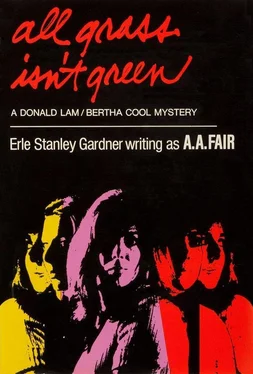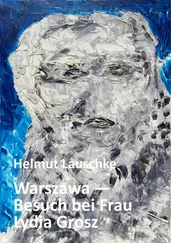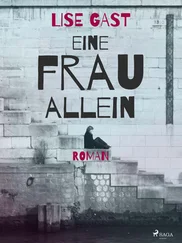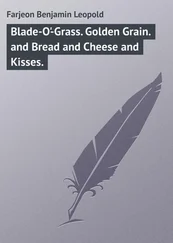“I was desperate at the time. I tried to make noises to attract the attention of the driver. I realize now it’s one hell of a good thing that I didn’t.”
“All right,” I said, “that’s probably true.”
“What happened after that?” he asked. “You said Puggy and Eddie got in a fight about something?”
“Puggy and Eddie got in a fight about something,” I said. “I imagine that Puggy started putting pressure to bear on Eddie about the fact that you needed to be taken Care of on a permanent basis. Anyway, they got in a fight and Eddie got killed.”
“Got killed?” Hale said.
“Got killed,” I said.
“How?” Hale asked.
“One shot from a thirty-eight revolver,” I said, “and I wouldn’t be at all surprised if the revolver that fired the fatal shot wasn’t the gun Puggy had taken away you, the one that Nanncie had given you so you co protect yourself, and the same gun that had been given to Nanncie so that she could protect herself.”
Hale looked from me to Nanncie, then from Nanncie to me, then back to Nanncie. “Did Milt give it to you?” he asked Nanncie.
She nodded her head.
Hale reached an instant decision. “Don’t tell any about where you got that gun,” he said. “Let Calhoun explain it. He’s got plenty of money, plenty of pull, he’ll get the best lawyers in the country. Don’t let them drag you into it. Let’s let Calhoun shift for himself.”
I paid for the beers at the outdoor restaurant and said Hale, “Come on, you’ve got to pilot us down to the place where you spent the night. What happened with the ropes they tied you up with?”
“They’re in the back of my car.”
“Did you get the names of the people?”
“José Chapalla,” he said.
“They talk English?”
“Oh, yes.”
I walked over to look at the ropes in his car were a heavy fishing twine. When a knot is tied in stuff it can become very tight indeed.
I picked up the ropes and looked at the ends.
“What are you looking for?” Hale asked.
I said, “It’s a shame your Mexican friend didn’t know more about police science.”
“What do you mean?”
“A good police officer,” I said, “never unties a rope that a person had been tied up with. He cuts the rope and leaves the knots intact.”
“Why?”
“Sometimes you can tell a good deal about a person from the type of knot he ties.”
“Oh, you mean a sailor and all that stuff.”
“A sailor, a packer — and sometime just a rank amateur. Come on, let’s go. You’d better get your ear and we’ll follow. How far is it?”
“I would say around ten miles. But let me go with you, if you will, so I can stretch out. Nanncie can drive my car. I’ve had a real beating and I’m sore. My muscles are sore, my ribs are sore.”
“I know,” I told him. “I can sympathize with you. I’ve had several beatings.”
He climbed slowly, laboriously into the back of the car. “Gosh,” he said, “I’d love to have some hot water and a shave and get cleaned up.”
“In a short time you will,” I told him. “This is going to be my party from now on. I’m going to take you to the Lucerna Hotel in Mexicali. You can get a good hot bath and crawl into bed. Then you can get out in the swimming pool and float around and gradually exercise those muscles until you get the stiffness out of them.”
“That sounds good,” he said. “Boy, I’d sure love to get in a warm swimming pool and just relax and take all the weight off of myself and just float.”
“It can be done,” I told him.
We drove down to La Puerta where the road turns off to the east to go around the head of the Gulf.
“This is the road,” Hale said,
We drove down the road for some distance, then Hale said, “This is where they left the car.”
I got out and looked around.
I could see tracks where a car had been driven off the road, then where it had been standing perhaps a hundred yards from the edge of the road. There were footprints all around where the car had stood, lots of footprints.
We went back to the road and drove on...
“That’s the place,” Hale said, “that adobe house over there.”
It was an unpretentious adobe house with an old dilapidated pickup in front of it.
I stopped the car and got out to knock on the door. Nanncie pulled up behind us and parked.
Hale eased his way out of the car and shouted, “Oh José — Maria. It’s me. I’m back.”
The door opened.
A Mexican, somewhere in his fifties, with a stubby black mustache and a shock of black hair, attired overalls and a shirt that was open at the throat stood in the doorway, smiling cordially.
Just behind him, peering over his shoulder, I could see the intense black eyes of the man’s wife.
“Amigo, amigo!” he called. “Come in, come in!”
Hale hobbled along and introduced us. “José and Maria Chapalla,” he said. “They are my friends. And these two are my friends, Miss Nanncie and... What did you say your name was?”
“Lam,” I told him.
“Mr. Lam,” he said to the Mexicans.
“Please to come in,” the Mexican said.
We entered the house, a place which had been designed to shut out much of the powerful sunlight, and that was comfortable with the smell of cooking.
There was a fireplace with bricks built up so that a, iron pot could rest between the bricks. Underneath iron pot was a small bed of coals, and by the fire, there were some sticks with which to keep the fire going.
To the left of the fireplace was an oil-burning stove with a battered tin coffeepot and a covered cooking which a Mexican dish was simmering slowly, the cover lifting from time to time to let out a little spurt of steam.
The aroma of rich cooking filled the place.
Hale said, “My friend here wants to know about how you found me. Can you tell him the story?”
Chapalla said, “Sit down, sit down,” and then became embarrassed as he realized there weren’t enough chairs for all of us.
“Please to be seated,” he said. “I prefer to stand when I tell the story.”
We seated ourselves.
His wife, Maria, a heavily built Mexican woman with a chunky frame and a smile of good-natured hospitality busied herself at the stove.
“Would you perhaps have coffee?” Chapalla asked.
“We haven’t time,” I said. “We’re fighting against minutes. If you could just tell us how you found the car, it would be of great help.”
“It is muy mala ,” Chapalla said. “Bandits have hurt this man very bad and left him tied up.”
“How did you find him?”
“I am going to get some food,” he said. “Our trips to the store are not many. When we go we take the pickup and we get much stuff.
“I am driving. I see this car off the road. At first I think nothing of it. I drive by it.
“Then I say to myself, ‘José, why should that car go over there and be left. If there is trouble with the motor the car would be on the road. If it is driven over there, what is there to make the driver go to that part of the country to stop his car?’
“I drive on.
“But I think. I think. I do more thinking. Then I stop, back up, I turn around. I go over to the car. At first I see nothing. Then I look inside. I see something that is light. It is the cloth that has been tied in your friend’s mouth.
“I say, ‘ Caramba , what is this?’ I try the door of car. It is not lock. I open it. Your friend is inside. He been tied with a fishing cord in which knots are very tight indeed.”
“You turned him loose?”
“I turned him loose.”
“Did you cut the cords?”
“No, I am afraid. The cords are tied too tight. Maybe a slip of my knife and there is blood.”
Читать дальше












